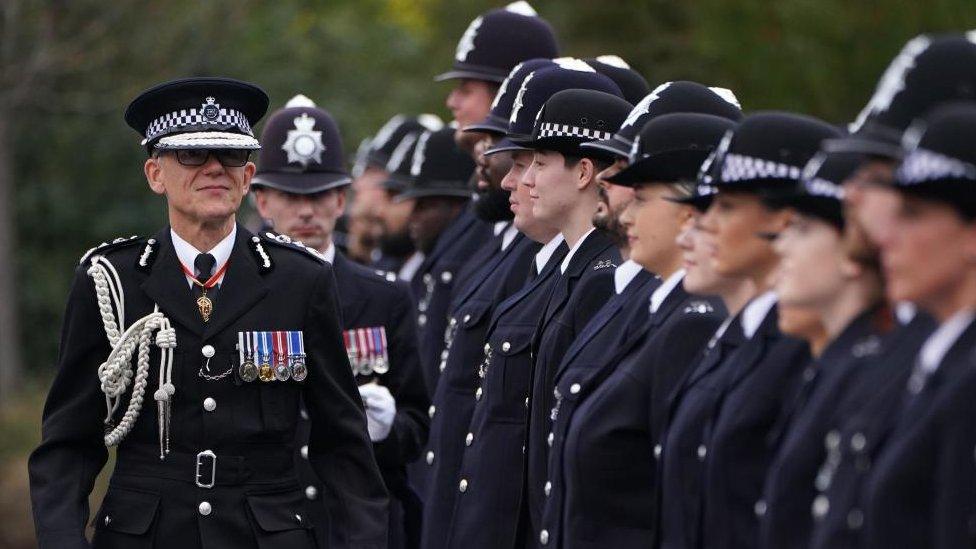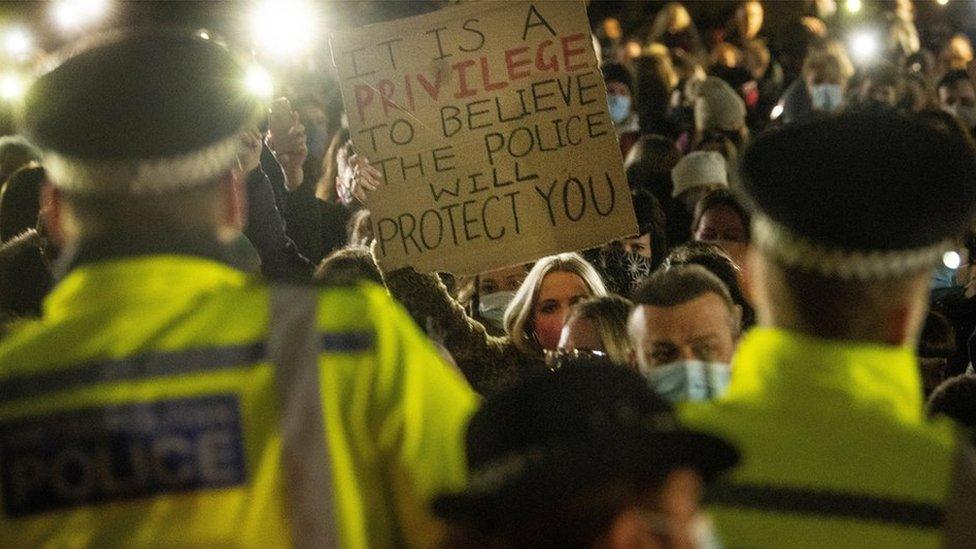Public sector strikes could stop police fighting crime, Met chief says
- Published

Sir Mark Rowley (left) warned officers could spend more time on non-police work in the event of strikes by public sector works
Public sector strikes could stop officers fighting crime effectively, the Metropolitan Police chief has said.
Writing in the Daily Telegraph, external, Sir Mark Rowley says officers already spend "too much time" on non-police work.
This includes spending hours in hospitals dealing with people with mental health conditions - which he says would worsen if strikes happen.
Sir Mark also writes that the Met needs a 27% budget increase "just to stand still" compared with 10 years ago.
In a wide-ranging article for the newspaper on the challenges faced by modern policing, the Metropolitan Police commissioner says that, for every mental health patient given police help, two officers spend an average of 14 hours in total waiting with them in hospital.
Sir Mark also notes that the number of people being sectioned by police under the Mental Health Act has more than quadrupled since 2013.
He writes that "police officers are spending too much time doing social and health work" in the place of other agencies who "have for many reasons stepped back".
"Which will only be exacerbated when other public services strike, something that the police as Crown Servants cannot do," Sir Mark adds.
The UK's most senior police officer adds that whenever any other public sector services goes on strike "it's hard to imagine that more work won't potentially overflow in our direction".
His remarks come amid the looming threat of strikes by many public sector workers, including nurses, with action expected to start by the end of the year.
Sir Mark also points out the funding problems faced by his force, saying that although there are now more police officers than a decade ago, each officers in being paid less once inflation is taken into account.
He says that for salaries to rise in real terms to match that of the 2010/2011 financial year, an investment of around £878m - adding 27% to the Met's budget - was needed.
Sir Mark acknowledges it was a good thing there are "more police in London than ever before", but said this has been achieved by "pulling two other levers which come at a cost".
First by "paying officers far less in real terms", Sir Mark notes that a qualified constable is paid around 14% less than 10 years ago - with increased pension contributions further hitting take-home pay.
Secondly, he says that the Met's support services which "set officers up to succeed" have been "hollowed out" to save money.
In an acknowledgement of the likelihood of the government announcing spending reductions in the Autumn Statement next week, he admitted it might not be "realistic in the current climate" to fix the challenges with extra funding at the moment.
Related topics
- Published2 November 2022
